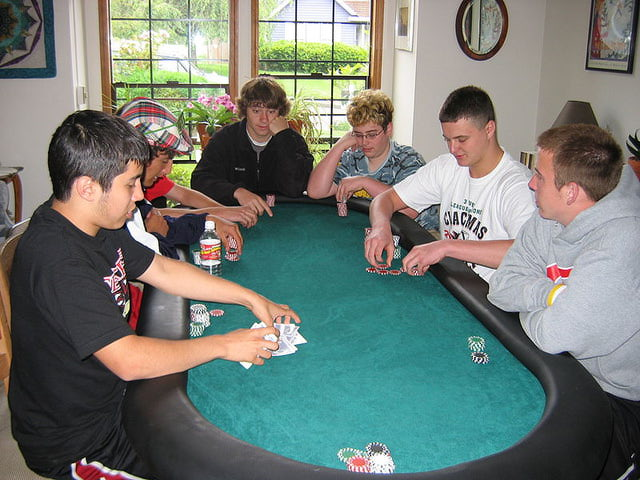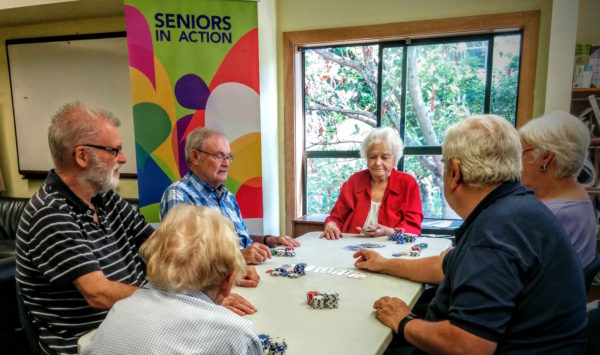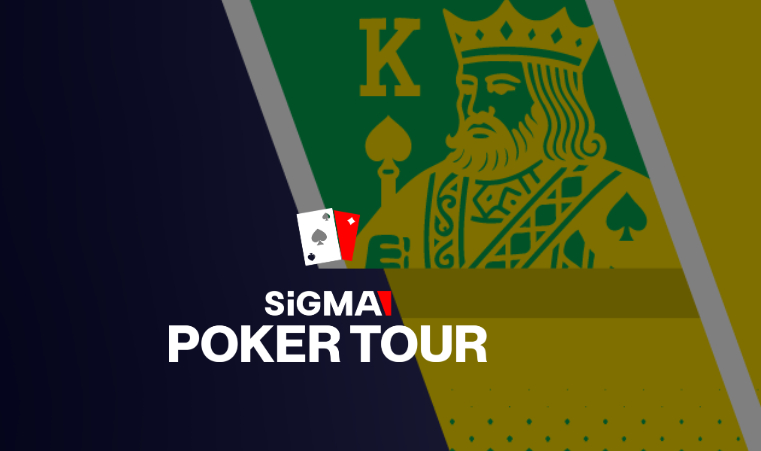Poker is often seen as a solitary pursuit. One player, facing off against another, with chips and cards between them. But dig a little deeper and you’ll find that poker, far from being an isolating game, quietly creates connections in places where you might not expect it, like retirement homes, remote towns, and neighborhood garages. Poker fosters a sense of community that goes well beyond the game itself.

A Table That Levels the Field
Poker brings together people who may not have otherwise crossed paths. Age, background, and occupation fade once the cards hit the felt. A high school teacher might play next to a small business owner. A college student might sit across from a retired engineer. At the poker table, what matters most is how you play your hand. This holds true whether at a friends home game or even in a Las Vegas mega casino. You never know who you’ll be sitting next to at the felt; so long as you have the buy in to play, a seat is open for you.
This shared focus creates a rare kind of equality. Everyone is “working with the same deck.” That alone can build mutual respect, even between players with vastly different lives. It’s not about who talks the loudest or has the most to say. It’s about watching, thinking, strategizing effectively, and reacting in the moment.
Retirement Homes and Second Acts
Poker’s community-building power is especially clear in retirement homes. Many senior living centers have long included poker nights in their weekly schedules. The game encourages cognitive engagement, but its social impact may be even more important.

Image used for illustrative purposes only.
For older adults, loneliness can be a quiet challenge. Regular poker games offer structure and interaction without pressure. You don’t need to make small talk if you don’t want to. But if you do, there’s always a hand to discuss or a play to replay. Over time, the game becomes a reason to get dressed, show up, and engage.
In particular, longtime Cardplayer Lifestyle contributor George Epstein often wrote about how he used to teach poker to his fellow senior citizens, and how it provided them (and him!) with a joyous activity to engage in.
Online Tables, Real Connections
It might seem odd to talk about community in the context of online poker. After all, there are no physical tables, no chips to shuffle, no glances to read. Yet even here, connections form.
Some online platforms host recurring tournaments with stable player pools. Regulars start to recognize each other by screen names. Private Discord groups and forums form around specific games. Conversations spill over into strategy discussions, shared jokes, and even real-life meetups.
For those in rural areas or countries where live poker options are limited, online play becomes a bridge. It allows people to join a broader conversation. And while these connections may begin with the cards, they often extend far beyond them.
Poker in New Cultural Contexts
In many parts of the world, poker is now appearing in spaces that once held no association with card games. Cafe culture, for example, has embraced the game in new ways. In some places, cafes now host casual poker nights, where the stakes are low but the participation is high.
These gatherings appeal to people who might not set foot in a traditional poker room. The vibe is relaxed, the pace is friendly, and the focus is as much on the company as the cards. It’s part of a larger trend toward making social games more accessible. For many, it’s their first introduction to poker, and the gateway to a broader community of players.
Online platforms mirror this trend. Sites offering a range of gambling games at Cafe Casino also host poker rooms where players can engage with one another across skill levels. These environments aren’t just about the games as they provide structure for interaction, competition, and social exchange. The casual format makes poker feel less intimidating and more inviting, especially for newer players looking to learn the ropes in a low-pressure setting.
One variation that’s found popularity in such casual settings is Caribbean Stud Poker. Unlike Texas Hold’em, players compete against the dealer rather than each other. Each hand begins with an ante, and players receive five cards. After viewing one of the dealer’s cards, they decide to fold or raise. If the dealer qualifies, hands are compared and payouts follow a fixed structure.
Why It Works
Poker works as a social glue because it offers structure without rigidity. The rules are clear, but within them lies room for personality, creativity, and expression. A table of quiet thinkers and a table of loud talkers might play the same game, but the social tone will feel entirely different.
That flexibility makes poker adaptable to different contexts. Whether it’s a kitchen table, a digital room, or a public cafe, the game fits. It can be a weekly tradition, a tournament series, or a one-off gathering. And no matter the setting, it gives people something to do together.
There’s also the matter of time. Poker sessions unfold over hours, not minutes. That extended period allows for casual conversation, inside jokes, and shared moments of tension or celebration. Over time, these little things build trust and familiarity.
It’s Not Just About Winning
For many players, recreational ones especially, poker becomes less about winning and more about being present, engaged, and having a good time. A bad beat might sting, but it’s followed by a laugh, a story, or a reminder that the next hand is already being dealt. The game provides rhythm, ritual, and reason to gather.
This type of mindset is what allows poker to thrive in unexpected places. It’s not about chasing jackpots or making bold bluffs — although, to be sure, that’s also part of the game, especially for the more serious grinders. For most though, it’s about the quiet magic of sitting down with others and spending time in each other’s company. The chips matter, but the connection matters more.
Poker has a reputation for being competitive, and it is. But beneath the surface, it’s also collaborative. It creates space for people to show up, engage, and relate. Whether in a suburban garage, a seniors’ center, a cafe, or an online room, poker builds something rare: a community without obligation, forged hand by hand.





